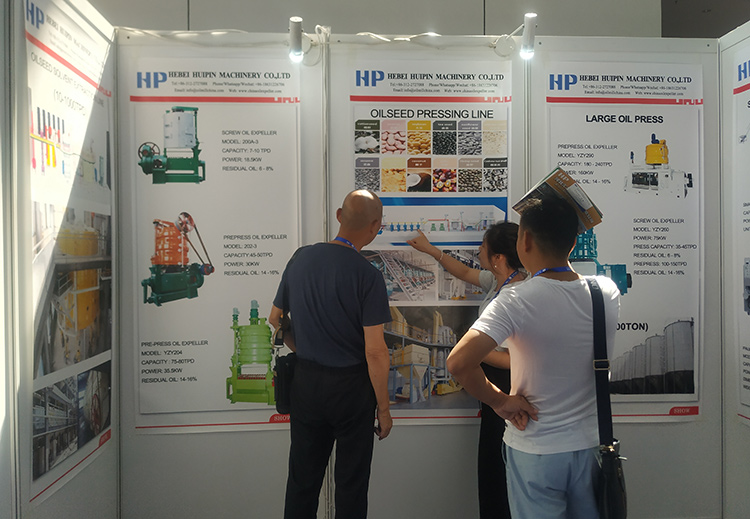des . 13, 2024 17:25 Back to list
soybean oil refined unit factory
The Refinement of Soybean Oil Processes and Importance
Soybean oil is one of the most widely used vegetable oils globally, deriving from the processing of soybeans. As consumers increasingly focus on health, nutrition, and sustainability, the demand for high-quality soybean oil has risen sharply. This article will explore the refining process of soybean oil, the various methods employed, and the significance of efficient refining practices in the food industry and beyond.
The Importance of Soybean Oil
Soybean oil is rich in polyunsaturated fats, particularly omega-3 and omega-6 fatty acids, making it a popular choice for cooking and food production. It is also utilized in various industries, including biodiesel production, cosmetics, and pharmaceuticals. The versatility of soybean oil attributes to its favorable fatty acid profile, mild flavor, and relatively high smoke point. However, raw soybean oil contains several impurities that must be removed through the refining process to create a product suitable for consumption and industrial applications.
The Refining Process
The refinement of soybean oil involves several critical steps degumming, neutralization, bleaching, and deodorization.
1. Degumming The first step in the refining process is degumming, which aims to remove phospholipids, proteins, and other hydrophilic impurities present in crude soybean oil. This is typically accomplished by treating the oil with water or a diluted acid, causing the impurities to hydrate and separate. The result is a more stable oil that is ready for further refining.
2. Neutralization Following degumming, neutralization removes free fatty acids that can result in an unpleasant taste and accelerate spoilage. This process usually involves treating the oil with sodium hydroxide (caustic soda), which reacts with the free fatty acids to form soap. The soap is then removed from the oil, resulting in a more palatable product.
soybean oil refined unit factory

3. Bleaching The bleaching process aims to improve the oil's color and remove minor impurities, such as pigments and oxidation products. This step typically involves the use of bleaching earth or activated carbon, which adsorb unwanted color compounds. The oil is then filtered to eliminate these adsorbents, resulting in a clearer and lighter-colored oil.
4. Deodorization The final step in refining soybean oil is deodorization, which removes volatile components that can impart undesirable odors and flavors. This step is crucial for producing a product that meets consumer preferences. Deodorization is commonly achieved through steam distillation under high temperatures and vacuum, which efficiently eliminates these compounds without significantly affecting the oil's nutritional properties.
The Significance of Refining Practices
Efficient refining practices are essential for producing high-quality soybean oil. The refining process not only enhances the oil's shelf life and safety but also improves its sensory properties, making it more appealing to consumers. Refined soybean oil has a longer shelf life, is resistant to rancidity, and maintains flavor profiles that are ideal for various culinary applications.
Moreover, the environmental impact of refining processes cannot be overlooked. Advances in technology and methods aim to reduce waste and energy consumption during refining, contributing to more sustainable practices in the oil industry. By optimizing refining processes, manufacturers can minimize their carbon footprint while still delivering high-quality products to consumers.
Conclusion
The refinement of soybean oil is a complex yet essential process that transforms raw soybeans into a versatile and widely used commodity. Understanding the importance of each refining step underscores the oil's impact on nutrition, culinary experiences, and industrial applications. As the demand for healthy and sustainable food options continues to rise, efficient refining practices will play a pivotal role in meeting consumer needs while considering environmental sustainability. The future of soybean oil refining remains promising, with ongoing innovations paving the way for improvements in product quality and production efficiency.
-
Professional Safflower Oil Press Service | AI-Efficient
NewsAug.03,2025
-
HP290 First Press Oil Expeller Machinery: Efficient Oil Extraction
NewsAug.02,2025
-
Top Food Oil Refined Unit Companies w/ GPT-4 Turbo Tech
NewsAug.01,2025
-
Premium Black Seed Oil Expeller - High Efficiency Cold Press Oil Machine
NewsJul.31,2025
-
Oil Processing Equipment - High-Efficiency Flaking Machine
NewsJul.25,2025
-
High-Efficiency Peanut Oil Refined Machine for Quality Oil Production Leading Exporters & Companies
NewsJul.08,2025
